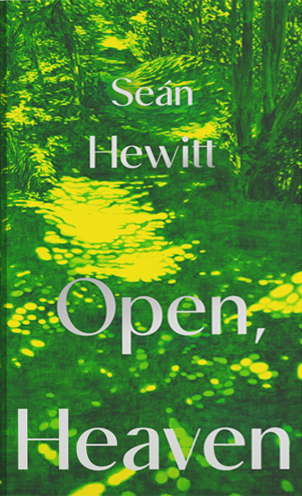

The Art of Fermentation: New York Times Bestseller
Sandor Ellix Katz
Named One of the 25 Most Influential Cookbooks From the Last 100 Years by The New York Times
‘…The high priest of fermentation theory’ the Guardian
‘Sandor Katz’s teachings and writings on fermentation have changed lives around the world.’ Dan Saladino, The Food Programme BBC
The bible for the D.I.Y set: detailed instructions for how to make your own sauerkraut, beer, yogurt and pretty much everything involving microorganisms. The New York Times
International New York Times bestseller, translated into 10 languages and over a quarter of a million copies sold worldwide
New York Times bestseller The Art of Fermentation is the only fermentation guide you’ll ever need! In this book, fermentation revivalist Katz contextualises fermentation in terms of biological and cultural evolution, gut health, immunity, nutrition and even economics. Here, you will find the A to Z of everything you need to know about fermentation. From the novice fermentationist to the experienced practitioner, this book has something in it for everyone.
With beautiful illustrations and extended references you will find details on making:
- fermenting vegetables
- sugars into alcohol (meads, wines, and ciders)
- sour tonic beverages
- Milk
- Grains and starchy tubers
- beers (and other grain-based alcoholic beverages)
- beans; seeds; nuts
- fish; meat; and eggs
- growing mold cultures
- Kimchi, kraut
- kombucha, kefir
Sandor Katz’s award-winning writing and in-depth knowledge as a fermentation revivalist guarantees that this book will remain a classic in food writing and the first guide of its kind. Perfect for cooks, food lovers, fermentation enthusiasts, farmers and foragers alike!
Product Details
About Sandor Ellix Katz
Reviews for The Art of Fermentation: New York Times Bestseller
Jenn Garbee, LA Weekly "The Art of Fermentation is an extraordinary book, and an impressive work of passion and scholarship. It lays the foundation for fermenting all kinds of foods, and whoever reads it will be able to negotiate any recipe for ferments (and conquer any lingering nervousness about fermentation) with impunity. I am so impressed - and ready to begin! Thank you, Sandor Katz."
Deborah Madison, author of Vegetarian Cooking for Everyone and Local Flavors "Sandor Katz has captured the essence of fermentation in this new book, which bubbles over with scientific, historical, and practical information about humankind's first biotechnology and earth's first energy source. The mystery and sensory allure of naturally fermented products ranging from fruit, honey, milk, all manner of starchy grain, tuber and stalk
even fish and meat
are laid bare and enthusiastically and lucidly brought to life for both epicure and the do-at-homer."
Patrick E. McGovern, Scientific Director, Biomolecular Archaeology Laboratory, University of Pennsylvania Museum, and author of Ancient Wine and Uncorking the Past "The Art of Fermentation appeals to our personal and fundamental well being, with a thoroughly engaging account of wild, tamed, and unaccounted-for microorganisms. Based on theory, science, and practical observations, Sandor Katz casts thousands of dots onto the pages for us to connect with our own experiences and interests. There are things he writes in this book that are relevant to everyone. Whether we are at war or peace with the tiny creatures we call microorganisms, we can't help but conclude that they are the building blocks of the communities we observe as organisms. His obsession with ferment is contagious. With the flip of a page it's easy to find oneself discovering our own personal journey embedded in this thoroughly engaging book."
Charlie Papazian, author of The Complete Joy of Homebrewing and many other books on beer "This is, quite simply, the finest book on fermentation available. It is comprehensive, erudite, and surprisingly profound. Sandor Katz is the guru of a large and growing tribe of fermentation enthusiasts and this book will awaken you to the thrilling world of benign bacteria all around us. Not only do they provide us with pickles, cheese, bread, alcohol - but our existence depends on bacteria and they deserve our reverence and respect."
Ken Albala, Food Historian and Coauthor of The Lost Arts of Hearth and Home: The Luddite's Guide to Domestic Self-Sufficiency "Sandor Katz has proven himself to be the king of fermentation with this new book, an exhaustive yet very readable compendium of fermentation wisdom and techniques from around the world. A must-have in the libraries of anyone interested in food and nutrition."
Sally Fallon Morell, President, The Weston A. Price Foundation "The Art of Fermentation is a remarkable testimony to the astonishing passion that Sandor Katz has for all matters fermentative. History, science, and simple how-to wisdom are woven together in this extensive journey through the amazing diversity of foods and beverages that are founded upon fermentation."
Dr. Charlie Bamforth, Professor, Department of Food Science and Technology, University of California, Davis and author of Food, Fermentation and Microorganisms "The Art of Fermentation is much more than a cookbook...Sure, it tells you how to do it, but much more important, it tells you what it means, and why an act as quotidian and practical as making your own sauerkraut represents nothing less than a way of engaging with the world. Or rather, with several different worlds, each nested inside the other: the invisible world of fungi and bacteria; the community in which you live; and the industrial food system that is undermining the health of our bodies and the land. This might seem like a large claim for a crock of sauerkraut, but Sandor Katz's signal achievement in this book is to convince you of its truth. To ferment your own food is to lodge an eloquent protest-of the senses-against the homogenization of flavors and food experiences now rolling like a great, undifferentiated lawn across the globe. It is also a declaration of independence from an economy that would much prefer we were all passive consumers of its commodities, rather than creators of unique products expressive of ourselves and the places where we live."
Michael Pollan, from the Foreword


